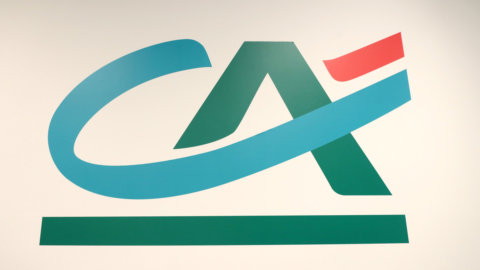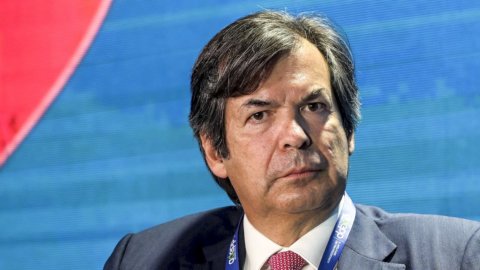It's a race against time and everyone is rushing to try and fix a problem that already has its roots systemic. For save Eurolife, the Italian insurance company in the hands of the English fund Cinven, the hypothesis that is emerging in these hours is that of its unpacking for which calibers such as Intesa Vita, Generali, Poste, Unipol and Allianz, under the aegis of Ministry of Finance and Economy which would have shared its shape and contours and with the active presence of theIvass.
Already from the extent of the means used it is clear how important the accident is.
For Eurovita, the danger is that it takes shape from the "rush to the counter" scenario experienced by some banks (see for example Svb in the United States). In the case of the insurance company the fear is the "Race for Ransom" by its 353.000 customers, with 413.000 policies, for a total of 9 billion. It is no coincidence that IVASS, the insurance supervisory authority headed by Bankitalia, promptly intervened on 30 March last, extending the freeze on redemptions until June.
Sharing a broader problem
The hypothesis of unpacking and sharing the problem comes after a complicated discussion that saw the insurance sector, institutions, authorities and distributing banks sitting around a table to try to find a solution to a problem that has affected the sector Italian life, the country's main savings haven. The fact is that the image of the insurance company has been so damaged by the latest events that this very unpacking, which would lead to a total restyling, from the name to the governance, could restore credibility to it and users trust.
Il Ministry of Enterprise and Made in Italy, on a proposal from IVASS (Institute for Insurance Supervision), has ordered theextraordinary administration and the dissolution of the bodies with administration and control functions vis-à-vis Eurovita Holding and Eurovita. Ivass then took a double decision. He nominated Alessandro Santoliquido commissioner for the extraordinary management of both companies and Antonio Blandini, as chairman, and extended - as we said - from 31 March until to 30 June the suspension of redemptions of insurance contracts
The unpacking proposal
The idea, which arrived on the MEF table, would be to divide Eurovita in five company branches, all of the same size, which would then be taken over by the big five insurance companies, Intesa Vita, Generali, Poste, Unipol and Allianz, as also reported by the Sole24Ore. In this way Eurolife would change its name and would continue to operate exclusively with the portfolio of unit-linked products (which are worth 6 billion in reserves) while policyholders would find themselves holding a contract with Generali rather than with Unipol, Allianz, Poste or Intesa, with all the guarantees that this entails. The sector would therefore bear the insurance risk and the costs associated with the integration of the business unit, such as personnel management and subsequent migration.
The CEO of Poste spoke about the rescue of Eurovita Matthew Del Fante answering a question: “It is clear that a system solution should be found, we are ready to hear what it is. The institutions are dealing with it, we see no signs of nervousness with respect to our investors and the redemption rates are unchanged”.
The relationship between capital increase and solvency
secure Eurovita, as requested by Ivass for some time, a capital increase to bring back the solvency, i.e. the solidity indicator, now calculated at around 85%, at an acceptable level.
The figure that emerges now would appear to be 300 million paid by distributing banks and insurance companies, in addition to 100 million already injected non-repayable by Cinven. With this cash injection, the Solvency of Eurovita would increase towards 150%, which however remains far from the sector average in Italy indicated, as underlined by S&P in its recent report, around 200%.
Instead, with the idea of unpacking on the plate, there would be an overall value that can be estimated at 500 million.
The issue of any early redemptions
Such a capital increase could be within the reach of banks and insurance companies that have seen worse even in the recent past. Monte dei Paschi, for example, asked the Italian financial system for 2,5 billion euros last year to save itself.
But there is another problem that blows on the neck of Eurovita and of the whole system: the question of contingents early redemptions which customers will be able to request once the policies have been released, from 1 July, a date progressively postponed from 6 February. In this case, barring new interventions by IVASS, the figure changes: the redemptions of segregated funds which in all are estimated at 9 billion. On the one hand we are thinking of one credit line of 2 billion issued by the banking institutions involved in the affair, as a "safety net". But it is clear that something more structured is needed and the hypothesis that is emerging could serve the purpose.
The role of distribution banks
With the unpacking proposal, the distribution banks, namely Fineco, Sparkasse, Credem and Fideuram. The insurance sector would therefore ask the banks to act as "guarantors" of the customers to whom they have placed the Eurovita product. Thus, if a customer wanted to request the redemption of the policy, the banks would have to take over ownership of the contract and bring it to maturity, benefiting from any return and repayment of the capital.





